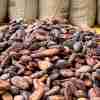Companies are duty bound to provide spares even after their production stopped: Ernakulam District Consumer Disputes Redressal Commission
The Hindu
“Companies are duty bound to make available spare parts to customers even after they have stopped production,” the Ernakulam District Consumer Disputes Redressal Commission has ordered.
“Companies are duty bound to make available spare parts to customers even after they have stopped production,” the Ernakulam District Consumer Disputes Redressal Commission has ordered.
While upholding the ‘right to repair’ of each customer, it directed Samsung India Electronics to pay ₹96,000 to a consumer. This follows a case filed before the Commission by Cdr (retd.) Keerthi M. Kurians, who had retired from Indian Navy, who purchased a double door refrigerator of the firm for ₹72,000 in 2016. It encountered a problem with its cooling capacity from 2021 onwards. The problem persisted despite repairs done by the firm’s technicians. Subsequently, Samsung offered to replace the fridge with a 15% discount.
Ms. Keerthi approached the consumer commission, citing deficiency in service. The firm contended that the 1 year warranty period was over and that the cooling problem occurred due to careless handling by the customer. An expert appointed by the court found that its spare parts were not available.
The Commission’s Bench comprising of its President D. B. Binu and members Vaikom Ramachandran and T. N. Sreevidya ruled that customer pay big amounts to purchase such equipment so that they last well beyond the warranty period. Moreover, non availability of spare parts contravened the right to repair of each customer, while the firm suggested purchase of an alternative fridge at higher cost. This amounts to an unfair practise and would also lead to accumulation of massive volume of electronic waste.
In this circumstance, Samsung must pay ₹36,000 to the consumer towards depreciation during the five-year period. This would be in addition to ₹60,000 by way of compensation and court expense and also interest at the rate of 9%, the Bench said.













